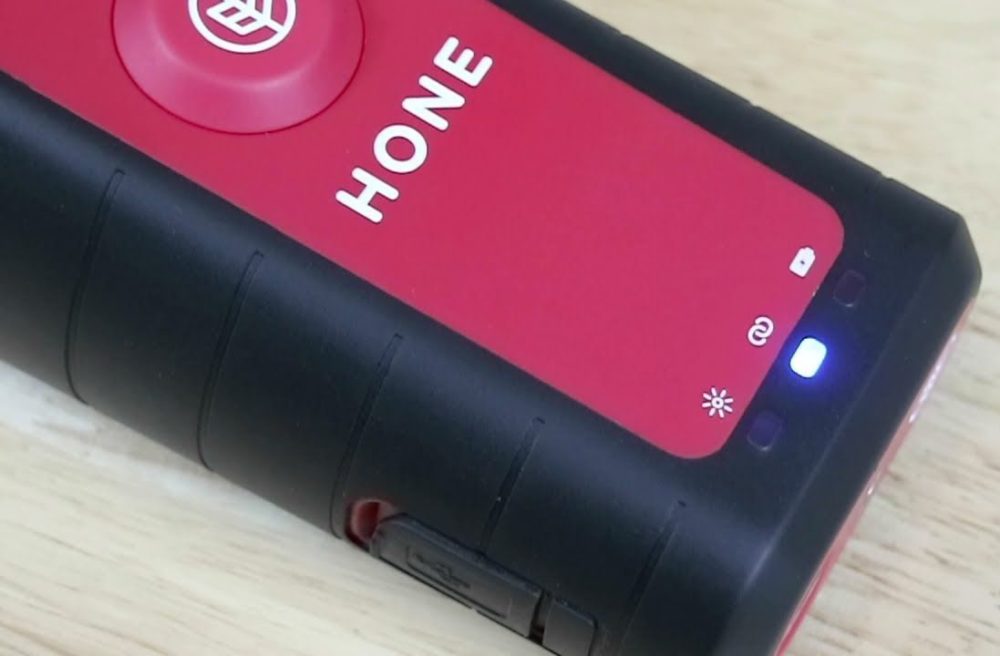Singapore-based family office Silverstrand Capital, which invests in regenerative agriculture and other nature-based solutions, has led a A$2.6 million ($1.88 million) secondary market transaction to acquire a stake in Australian agtech startup Hone, it told AFN.
The deal is aimed at helping Hone scale its spectrometry-based solution for soil carbon measurement and follows the startup’s Series A round late last year, which AFN can reveal raised A$6.5 million ($4.69 million) in funding. Australian ag commodities trader GrainCorp led the round; it announced back in October that it acquired a 15% stake in the startup as a result.
Hone is developing a range of different services for the agrifood industries based around handheld spectrometer technology and artificial intelligence. The Newcastle, New South Wales-based startup initially focused on measuring moisture and protein content in grains and oilseed. It has also rolled out instruments for analyzing liquids in the food processing sector.
Its more recently established subsidiary Hone Carbon is deploying this tech to measure soil carbon, and will be “a particular focus” for new shareholder Silverstrand.
“Our mission is to reduce the cost and complexity of soil carbon testing whilst increasing its rigor and accessibility,” said Hone Carbon CEO Phil Ireland.
Realtime soil carbon measurement
Traditional soil testing requires farmers, agronomists, or landholders to take samples from the field and send them off to a lab. The sample is then typically dried, ground, and may have chemicals or other reactants added depending on what specifically is being measured.
“The challenge with soil testing is that the farmer needs to make a decision [about how they treat their field] now; two to four weeks is just too long to wait,” Ireland told AFN.
The startup’s Hone Lab Red device and software “enables landholders essentially to in situ scan the soil and determine those qualities from the reflected light” almost immediately, he said – allowing farmers to make decisions much more quickly.
As it cuts out the lab-testing stage, Hone Carbon’s solution also comes at a substantially lower price point – as much as five times less than conventional soil sampling, the startup claims.
Users pay a one-off fee for the device — which can be used again and again — and a subscription to access Hone’s spectroscopy models and software platform.
“Farmers are hesitant to do conventional lab tests because of the cost; whereas with ours, the more tests you do, you get a much greater resolution of data,” Ireland said. “Our tech enables farmers to monitor, cheaply and easily, their carbon stocks in realtime.”
Faster and cheaper
Despite their onerous nature, conventional lab tests are often viewed as being more rigorous and in-depth than alternative soil carbon measurement methods. For both conventional lab testing and spectroscopy, carbon stocks are determined through an averaging equation which collates several readings taken from different parts of a property, or even within a single field.
But since spectroscopy allows for far more readings, at a lower cost and within a shorter timeframe when compared to traditional lab techniques, it can enable greater accuracy over the longer term, Ireland suggests.
“The results produced by the Hone instrument are in an identical format to that produced by a conventional analytical laboratory. This means that the information can be fed into existing methods for carbon measurement and accounting protocols in the same way – only faster, and cheaper,” he adds.
Scaling up on the farm
Hone Carbon serves around 10 customers at the moment, including Australia’s national R&D agency CSIRO, local startup Loam Bio, ag carbon project AgriProve, and French farmer co-op Limagrain. It’s also working with an undisclosed soil carbon company in the US.
Hone Carbon’s products are among the few that currently meet requirements set out by the Australia’s Clean Energy Regulator for the generation of Australian Carbon Credit Units, or ACCUs – the country’s government-endorsed carbon credits system
“We’re very much in a scale-up phase. Current funding is about going from building and deploying tens of devices each year, to hundreds and thousands,” Ireland said.
“We’re going to be scaling up our workshop and support infrastructure to get one of these in the hands of every farmer that wants one.”
Soil Carbon Co is now Loam Bio, raises $30 million Series A funding – read more here
Hone Carbon is running pilot projects on several farms, including Tiverton Agriculture Impact Fund‘s Picardy property in Queensland and Silverstrand Capital’s Wyuna property in New South Wales.
Silverstrand’s investment portfolio runs the gamut from farmland to agrifoodtech startups, presenting a variety of opportunities for Hone to grow its network and further validate its offering.
The firm’s chief investment officer Kelvin Chiu told AFN that Hone’s handheld spectrometers are “groundbreaking” for the evolving industry around soil carbon measurement, reporting, and verification.
“We’re excited by how their work fits into our larger mission of scaling nature-based solutions,” he said.





